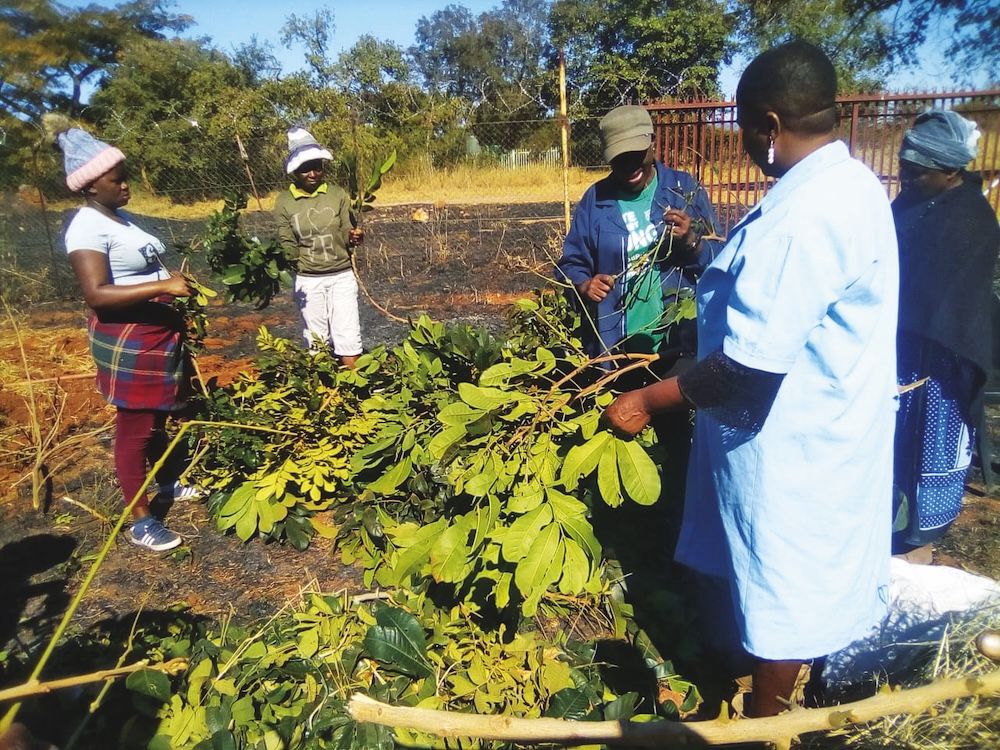Melisizwe Cooperative (Uitenhage)
About 1.2 ha was accessed from the local Municipality and the Cooperative has a Permission-to-Occupy (PTO) certificate which stipulates an indefinite period. The team consists of one practitioner, an intern and four other members. Pigs are kept about 20m away from the main hub, providing supplies of manure to boost soil fertility. Currently all the produce is absorbed by the local community but there is a need to find additional markets as production increases.
Kungawo Amandla Coop (Makhanda)
This hub is operating at a school and a nearby clinic with the combined land amounting to about 1.5 ha. There is high demand for green produce in the town and the hub supplies the school with vegetables once a week. One practitioner manages the hub together with an intern and an established management committee. The hub is working with ten backyard gardens operating in Joza, Zolani and in recently occupied Enkanini locations. Since there is no established nursery for this hub, the group produces its own seedlings using seedbeds.
Silwanendlala Coop (Manxeba Village, Sterkspruit)
This hub is situated in Senqu Municipality, about 100 km from Aliwal North, one of the most arid areas of the Eastern Cape. The hub is run by a group constituted by about 80% youth, who received agroecology training in 2021. About 0.8 ha has been acquired for vegetable and herb production, with one practitioner and one intern leading the work. The hub has already established eight food gardens and works with the government’s Community Works Programme to assist with establishing home gardens. A management committee assists with directing the focus of the hub.
Berlin AE Hub
This hub is situated in Berlin, 20 km east of King William’s Town, in one of the rain belts of the Eastern Cape. Currently this hub works with 20 homestead gardens. This hub includes features such as a garden, nursery, seed bank, orchard, storeroom, office and composting area. A variety of vegetables and field crops are being grown as well as vetch, a leguminous ground cover that serves to boost soil fertility in winter and can be used to feed livestock. The hub has set up links with a market in East London near the harbour. The hub has also linked the homestead gardens to street vendors in Berlin.
Makhotyana AE Hub (Libode)
This hub is on 3 ha of land which belongs to Development Education and Leadership Teams in Action (DELTA). The hub is very close to a waterway making it easy to access water for irrigation. The hub practises minimal tillage, soil preparation has been completed, kraal manure and mulching applied.

